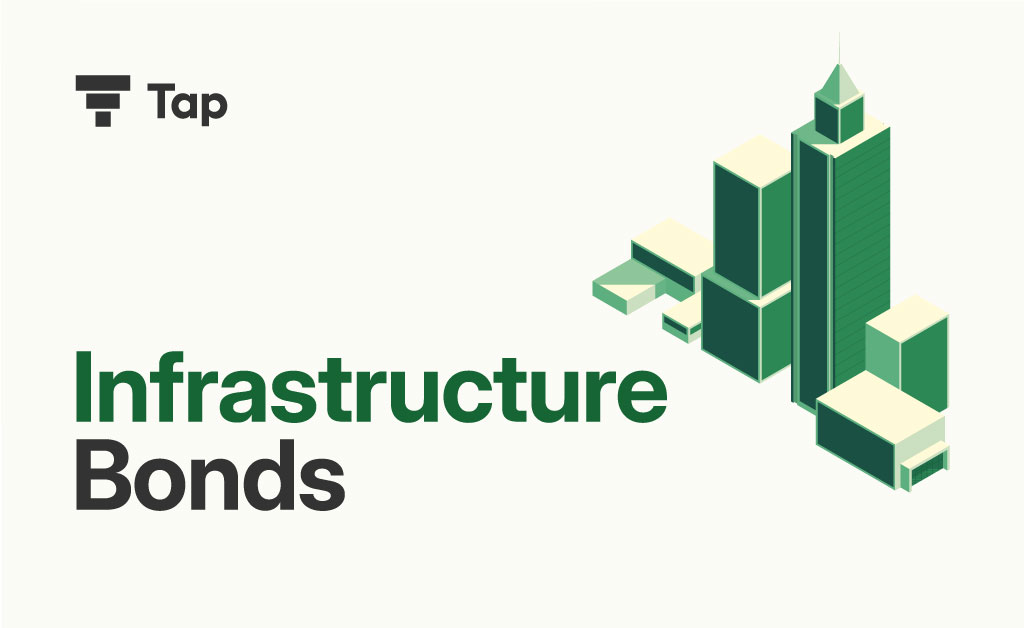Infrastructure Bonds: A Strategic Investment for Growth and Tax Efficiency

Introduction:
Having strong infrastructure is really important for a country’s economy to do well. It helps things move around smoothly, links different areas together, and helps the environment too. Investing in infrastructure bonds is a good way to help build India’s infrastructure while also reaching your own money goals.
Understanding Infrastructure Bonds:
These bonds are debt instruments issued by government agencies or public sector undertakings (PSUs) to finance critical infrastructure projects across India. Similar to traditional bonds, you invest capital and receive periodic interest payments. However, unlike some corporate bonds, infrastructure bonds often offer the advantage of tax benefits.
Which are infrastructure bonds?
An infrastructure bond is a kind of bond that can be issued by either private companies or government-owned businesses. These bonds are used to raise money for building infrastructure like highways, ports, railways, airport terminals, bridges, tunnels, pipelines, and more.
Benefits of Infrastructure Bonds:
- Supporting National Development: Investing in infrastructure bonds directly contributes to India’s growth by financing essential projects. This translates to a stronger economy, improved living standards, and enhanced job creation.
- Tax Efficiency: Many infrastructure bonds qualify for tax deductions under Section 80CCF of the Income Tax Act. This provision allows investors to reduce their taxable income by a specific amount, potentially lowering their tax liability.
Disclaimer: Tax regulations are subject to change. Consult a qualified tax advisor for the latest information.
- Stable Returns: Infrastructure bonds are generally considered low-risk investments, often backed by government guarantees. This provides a degree of security compared to some other investment options.
- Predictable Income Stream: Infrastructure bonds typically offer fixed interest payments at regular intervals, contributing to a reliable income stream for your portfolio.
Investment Considerations For Infrastructure Bonds:
- Investment Horizon: Infrastructure bonds typically have longer maturities (10-15 years) compared to other fixed-income instruments. Ensure your investment horizon aligns with the bond’s maturity date to avoid potential penalties for early withdrawal.
- Liquidity: Some infrastructure bonds might have lower liquidity compared to other bonds. This translates to potentially greater difficulty in selling them before maturity if necessary.
- Interest Rates: Compare interest rates offered by different infrastructure bonds to optimize your returns.
- Credit Rating: As with any bond investment, it’s crucial to consider the credit rating of the issuing entity. A higher credit rating generally implies lower risk.
Investing in Infrastructure Bonds:
Several channels facilitate investment in infrastructure bonds, including:
- Reputable Banks: Many banks offer infrastructure bonds as part of their investment product portfolio.
- Stock Market Investment Platforms: Online brokerage platforms enable convenient access to infrastructure bonds listed on stock exchanges.
- Financial Advisors: Consulting a qualified financial advisor can help you identify suitable infrastructure bonds that align with your investment goals and risk tolerance.
Conclusion:
Infrastructure bonds provide a strategic approach to contribute to India’s infrastructure development while potentially enjoying tax benefits and a steady income stream. By carefully evaluating your investment goals and risk tolerance, you can determine if infrastructure bonds are a valuable addition to your portfolio. Remember, conducting thorough research and consulting with a qualified financial advisor can empower you to make informed investment decisions.
Invest strategically for your future and India’s growth. Explore bonds as a potential investment opportunity, Sign up on Tap Invest today!
FAQs on Infrastructure Bonds:
- Which bank provides infrastructure bonds?
- State Bank of India (SBI): Raised Rs 97.18 billion through 15-year infrastructure bonds in 2023.
- ICICI Bank: Raised Rs 50 billion through infrastructure bonds in December 2022 for projects in power and roads.
- Other Indian Banks: Axis Bank and HDFC Bank have also been active in issuing infrastructure bonds.
- How to buy government infrastructure bonds?
There are several ways to buy government bonds in India:
- Banks and Post Offices
- Brokerage Houses
- Gilt Mutual Funds (MFs) and Exchange-Traded Funds (ETFs)
- RBI Retail Direct
- NSE goBID or BSE Direct
- Are all infrastructure bonds tax-deductible?
No, not all infrastructure bonds qualify for tax deductions. Look for bonds issued under Section 80CCF of the Income Tax Act to benefit from tax savings.
- What are the typical lock-in periods for infrastructure bonds?
Infrastructure bonds often have lock-in periods, typically ranging from 5 to 10 years. During this period, you cannot sell the bond without facing potential penalties.
- How do I check the credit rating of an infrastructure bond issuer?
Credit rating agencies like CRISIL and ICRA assess the creditworthiness of infrastructure bond issuers. You can find this information on the issuer’s website or through financial research portals.
- Can I invest in infrastructure bonds if I am a non-resident Indian (NRI)?
Yes, NRIs can generally invest in infrastructure bonds. However, it’s advisable to consult a tax advisor to understand any specific regulations or tax implications for NRIs.
- What are the alternative investment options to infrastructure bonds?
Several other fixed-income instruments offer similar benefits, such as government bonds, public sector undertaking (PSU) bonds, and fixed deposits. Each option presents its own risk-return profile and tax implications. Consider your investment goals and risk tolerance when making a decision.
